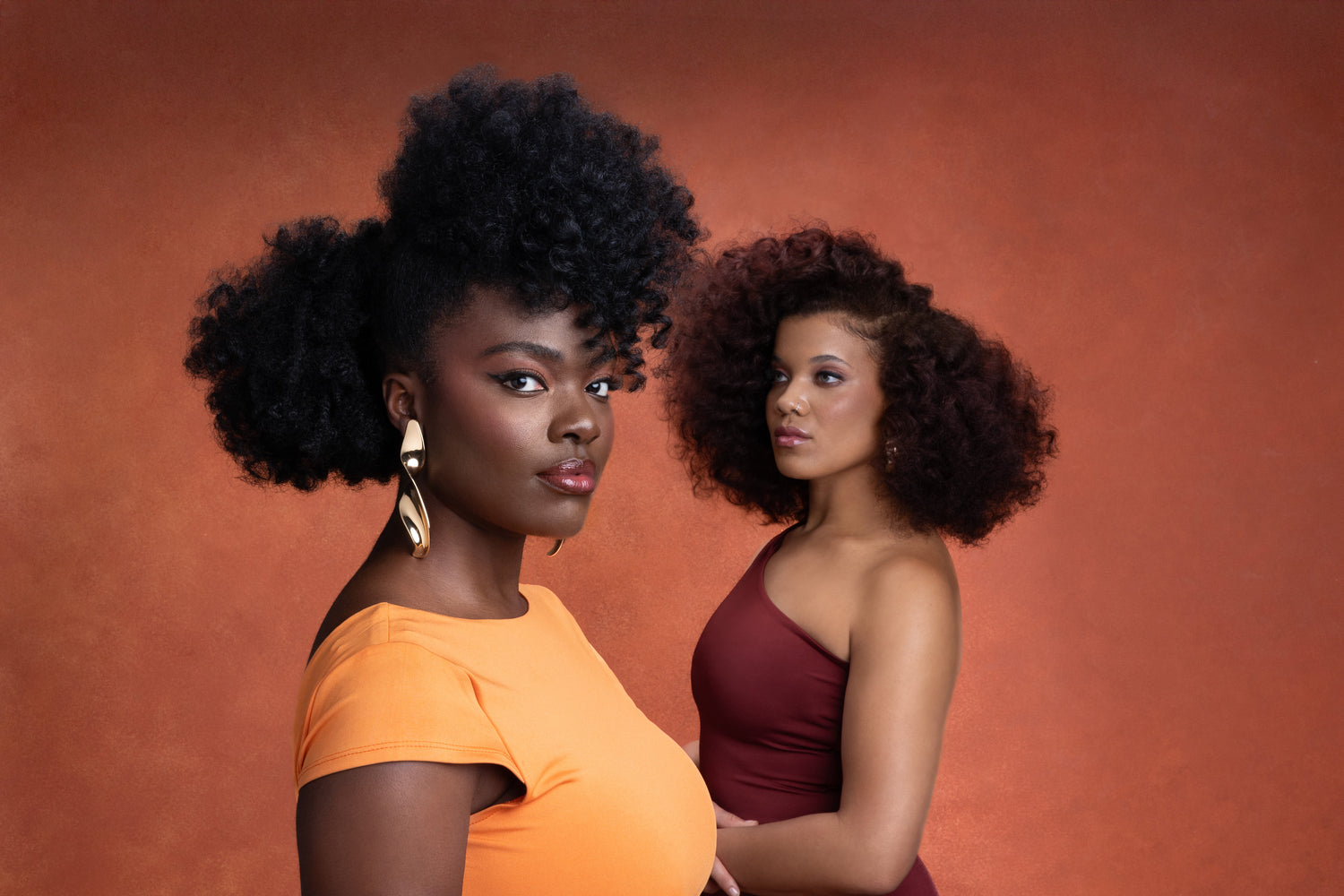Written by: Jeanette Nkwate
Are silicones really that bad for afro and curly natural hair? Well, as it is with most things the answer isn’t simple. Silicones are commonly found in hair care products due to their ability to create a smooth, shiny finish while reducing frizz.
However, the long-term effects of silicones can be problematic, particularly for curly, coily and kinky hair. Silicones like dimethicone coat the hair, blocking moisture and nutrients from penetrating the strands. Over time, this can lead to dryness, buildup, and damage, especially since non-water-soluble silicones are hard to wash out without harsh cleansers.
How Do Silicones Work?
Silicones are synthetic compounds used in hair care for their ability to create a sleek, shiny appearance by coating each strand with a thin, protective film. This makes the hair appear smoother and softer, while also providing a temporary barrier against environmental damage, such as humidity or heat. The immediate effects are often very appealing because they essentially reduce frizz, make detangling easier, and protect from heat styling tools.
The Problem with Silicones
While the short-term benefits of silicones are clear, their long-term effects can be problematic. The silicone layer that coats your hair can eventually block essential moisture and nutrients from reaching the hair shaft. This is especially concerning for textured, curly, or afro hair, which is more prone to dryness and can do with all the moisture it can get!
Over time, non-water-soluble silicones like dimethicone build up on the hair, creating a heavy coating that can't be removed with regular shampoo. This often leads to the need for stronger, sulphate-based cleansers, which can strip natural oils from the hair and scalp. The result is often dull, dry, and brittle hair that is more prone to breakage.
Water-Soluble vs. Non-Water-Soluble Silicones
Not all silicones are created equal. Some are water-soluble, meaning they can be washed out easily without leaving heavy residue. These types of silicones, such as dimethicone copolyol, are less likely to cause buildup and are generally considered safer for regular use.
However, non-water-soluble silicones, which are more commonly found in hair care products, are much harder to remove. They require harsher shampoos to cleanse the hair, which can lead to dryness and damage over time. For this reason, many people with curly or textured hair types opt for silicone-free products.
Why Should Those With Curly And Afro Hair Be Cautious Of Silicones
Curly and afro hair types are particularly vulnerable to the effects of silicone buildup. Because as we mentioned earlier, these hair types need more moisture. Silicones can block this moisture from penetrating the hair shaft, exacerbating issues like dryness and breakage.
Additionally, the buildup of non-water-soluble silicones can weigh down curls, reducing volume and making it harder to achieve defined, bouncy curls. The repeated use of silicone-based products can also require frequent clarifying shampoos, which can strip natural oils and further dry it out.
NB: Transitioning to silicone-free hair care might require a period of adjustment, but in the long run, your hair will be healthier, more hydrated, and better able to retain its natural texture and shine.
Opting for silicone-free products can allow hair to absorb moisture and nutrients more effectively. It also helps maintain a more natural texture, with curls remaining light and bouncy rather than weighed down.
So, if you’re looking for a new silicone-free hair care regime, check out Afrocenchix’s range, especially our silicone-free conditioner Swirl.

Related articles:
Afro Hair Products and Silicones: Why to Avoid Them
The best conditioner you’ll ever use? Here’s 7 reasons why you need Swirl
